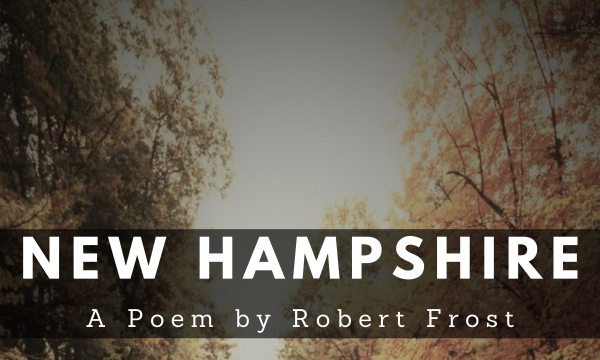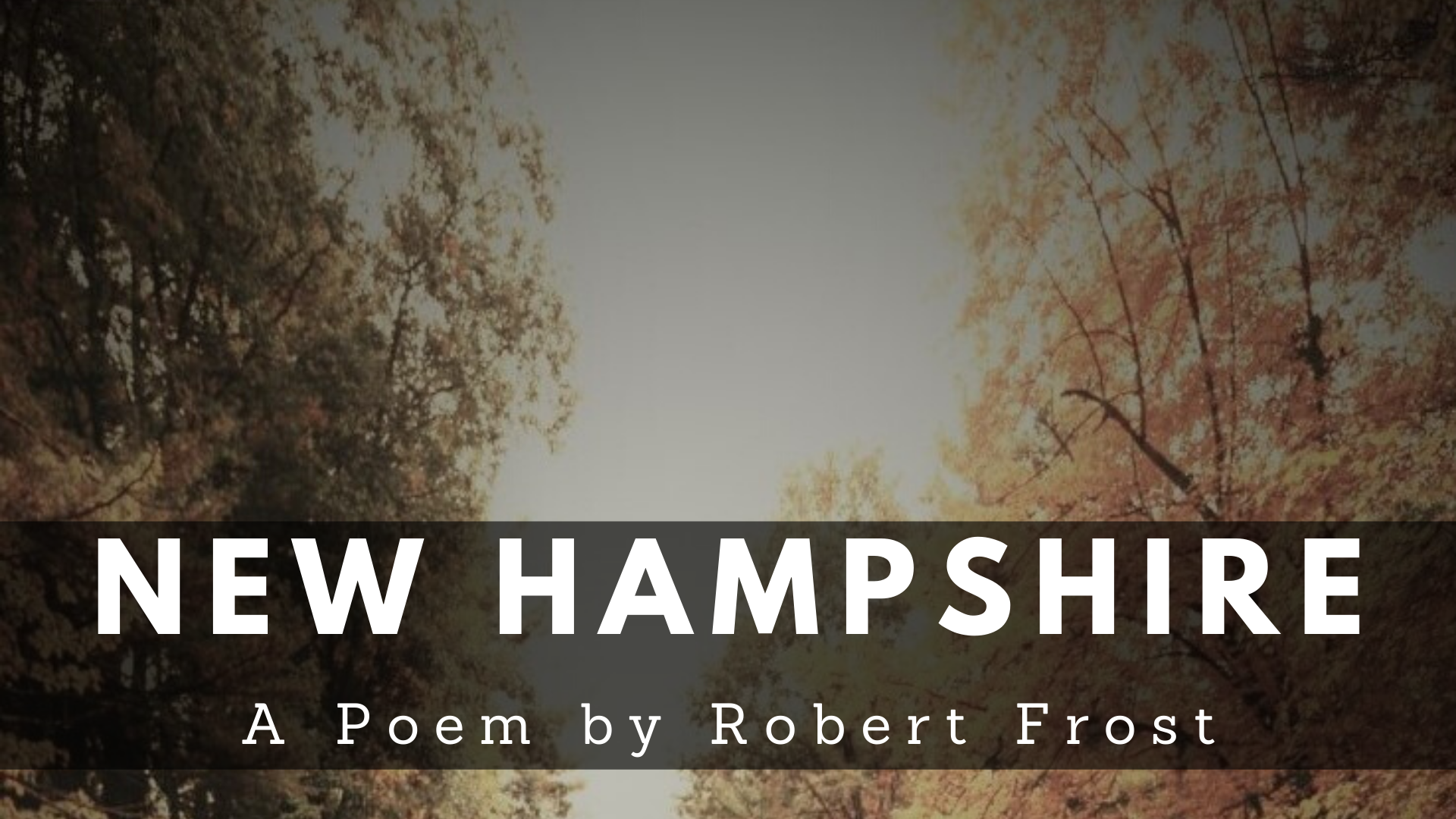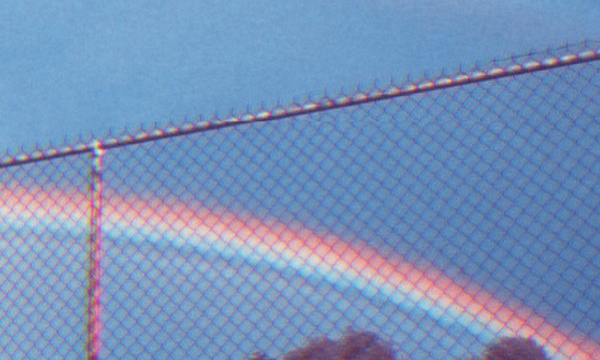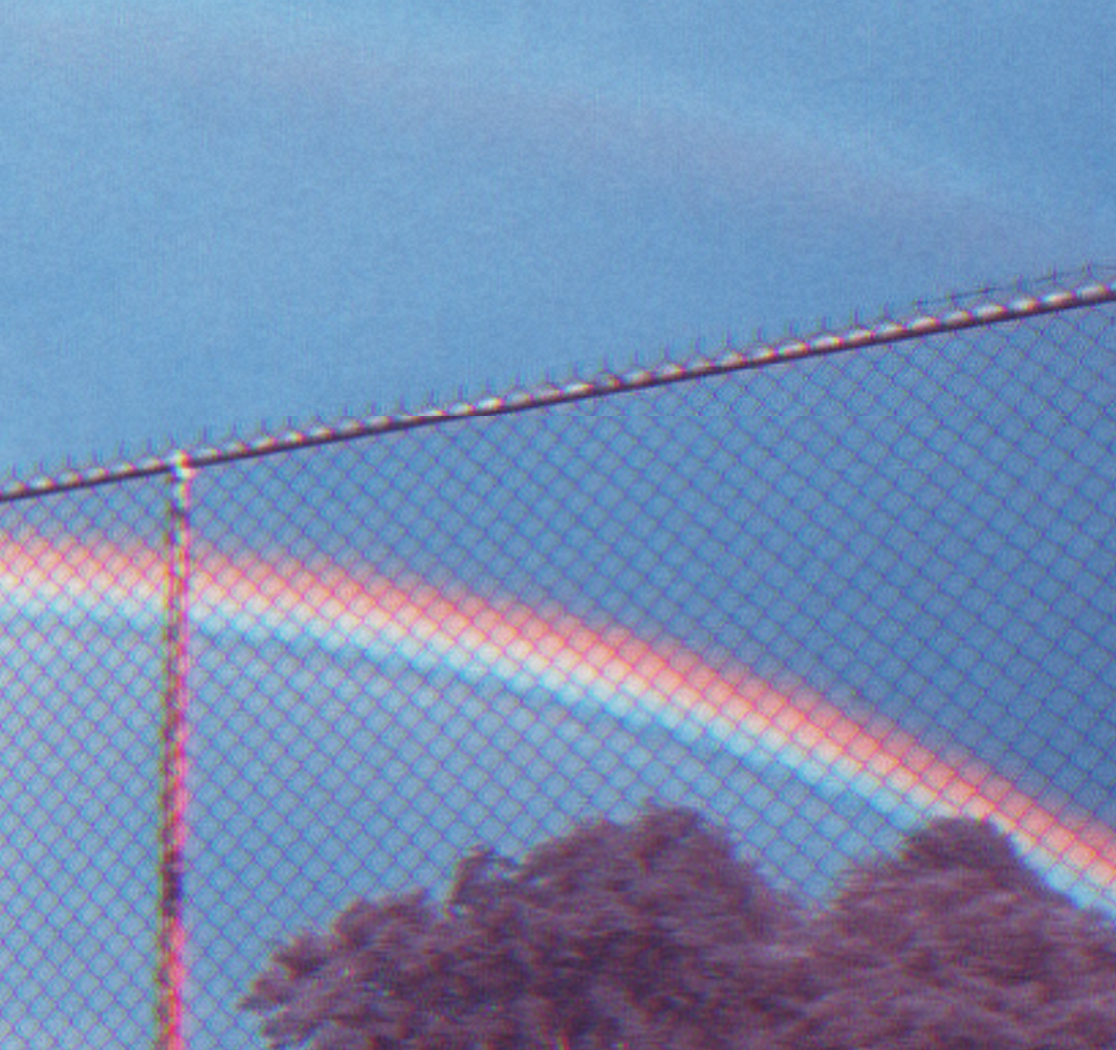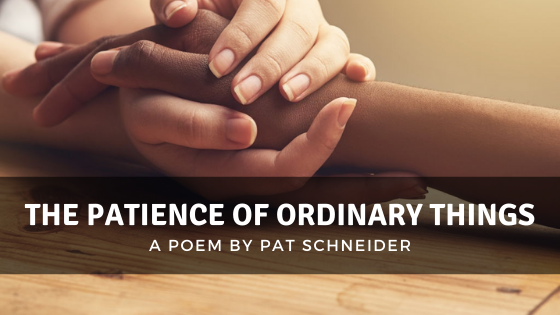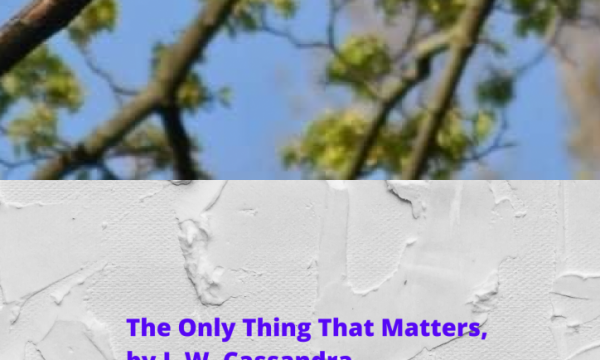
The Only Thing That Matters, by J. W. Cassandra. This my own poem was written recently, so I haven’t placed it in any volumes yet. The idea of the poem came to my by chance, if I can say it so. I watched the raven and came to my mind that in the Antiquity the so-called secret societies had been multiplied mainly in Asia Minor, where different gods and initiations had been in the focus. One of them was the cult of Mithra of the Graeco-Roman era or origin that used the Corvus that is Raven as a grade of the initiation. In addition, the raven was in the Scandinavian mythology the main god’s, Odin’s favourite twin animal as Hugin (Notion) and Munin (Memory) and his heralds, as well. By these ideas I wrote my poem that I share here with you.
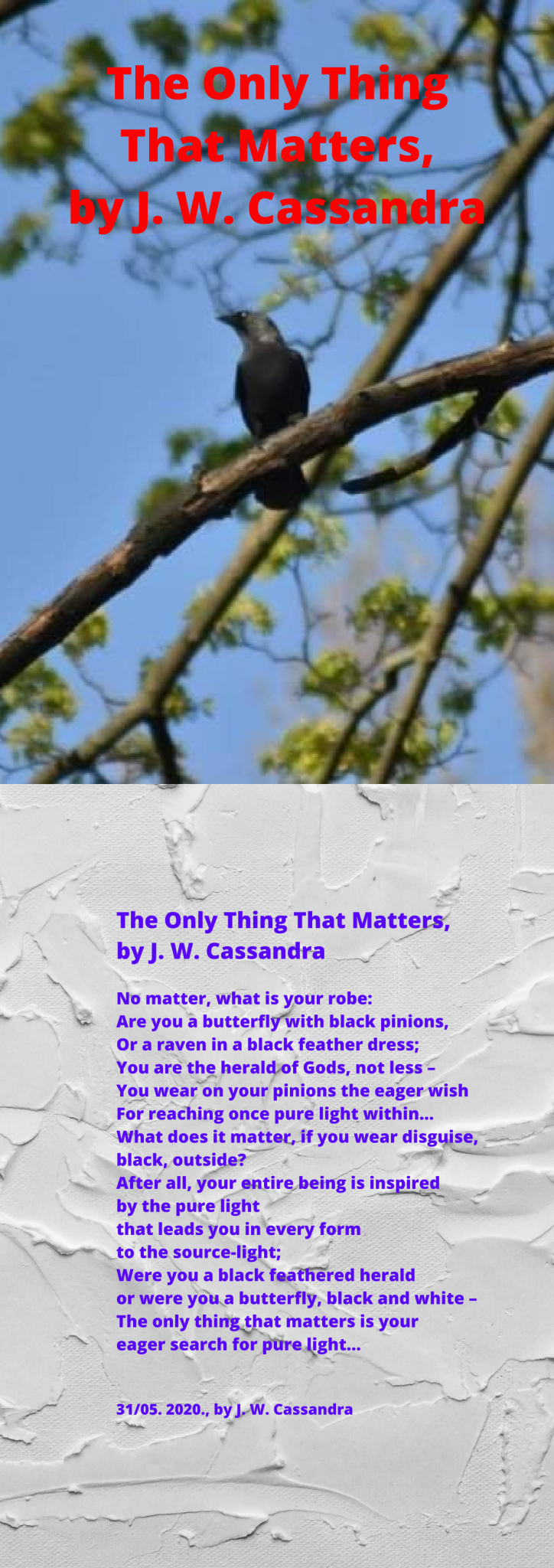

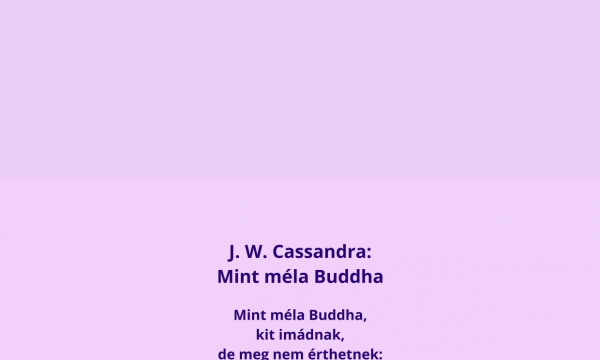

As the Dreamy Buddha, by J. W. Cassandra. This poem has a peculiar, unique story. It belongs to my volume 1, “Eternity, Awaken to Consciousness “, cycle “Altar for New Worlds”. And its story: originally I wrote it in my 19-year-old-age, as I then could see the Buddha. I mean the historical Buddha, Shakyamuni since, at that time in our country there had been available about Buddhism, Buddha, etc., only strongly imperfect information. Who at that time here at us knew who is Buddha, they were the “scholars”… So, at the university I wrote a bit longer version of the poem, and I shortened it in the Summer of 2007, when we found it in a copy book in the attic… Then I put it into my volume. Anyway, I had more poems just they had been lost from that period. Since then, I wrote more poems about Buddha, like Compassionate, Amitabha, etc. But this was my first attempt to depict, how I saw him then… My perspective widened and altered in the meantime. 🙂
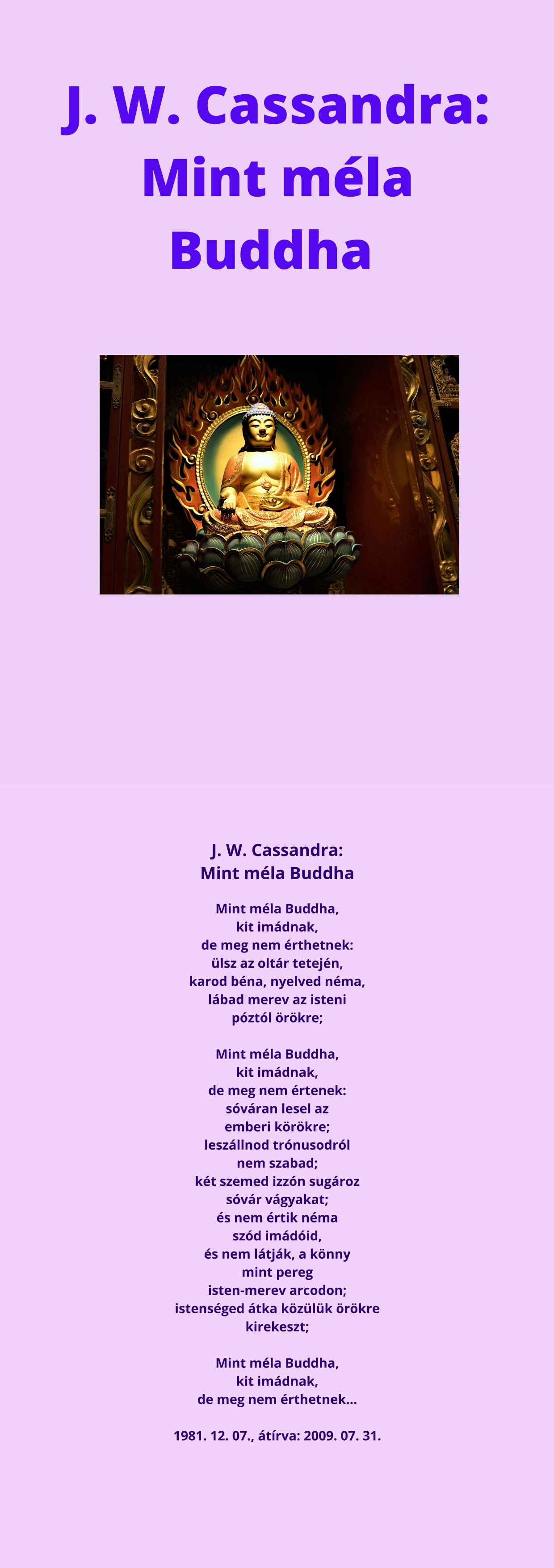

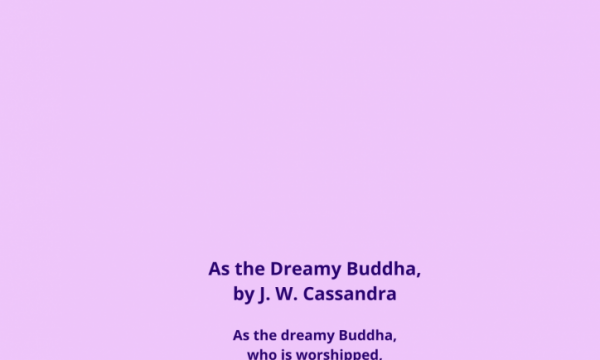

As the Dreamy Buddha, by J. W. Cassandra. This poem has a peculiar, unique story. It belongs to my volume 1, “Eternity, Awaken to Consciousness “, cycle “Altar for New Worlds”. And its story: originally I wrote it in my 19-year-old-age, as I then could see the Buddha. I mean the historical Buddha, Shakyamuni since, at that time in our country there had been available about Buddhism, Buddha, etc., only strongly imperfect information. Who at that time here at us knew who is Buddha, they were the “scholars”… So, at the university I wrote a bit longer version of the poem, and I shortened it in the Summer of 2007, when we found it in a copy book in the attic… Then I put it into my volume. Anyway, I had more poems just they had been lost from that period. Since then, I wrote more poems about Buddha, like Compassionate, Amitabha, etc. But this was my first attempt to depict, how I saw him then… My perspective widened and altered in the meantime. 🙂
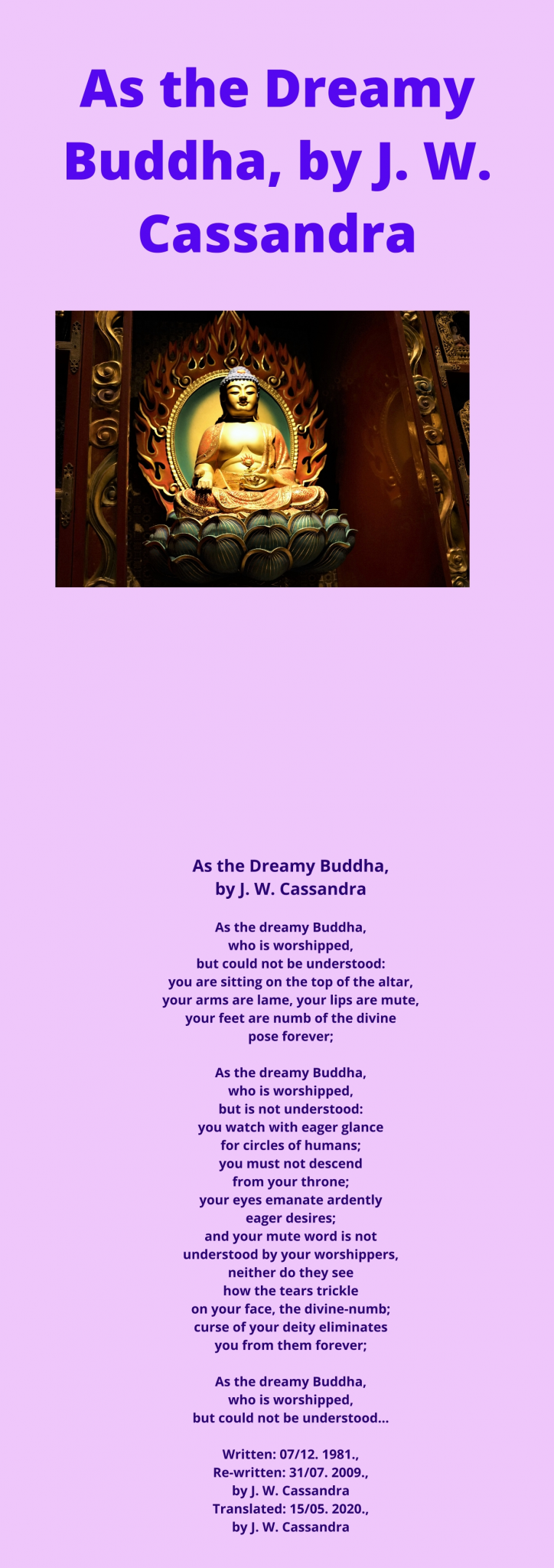



We’ve been allured andbecame blinded by the colorful realities of life.Because wenever learn the art of using the white crayon.


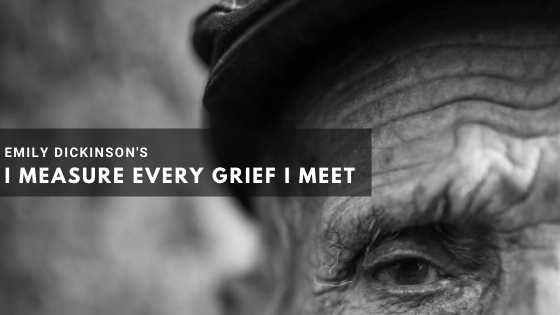

This is an extremely sad poem, much like the life of Emily Dickinson. A poem about her appraisal of the sadness and grief that she meets, and I bet she meets many. This poem just keeps getting sad until the last couple of paragraphs, where she reveals that other’s grief gives her comfort. It is others too, who have suffered. And some of the pains are like hers.




‘Diving into wreck’ is a poem that talks about the whole diving experience of a sea diver straight from the preparation stage until when he reaches the bottom of the sea to find a wreck. This poem talks about the whole emotional journey of the diver.


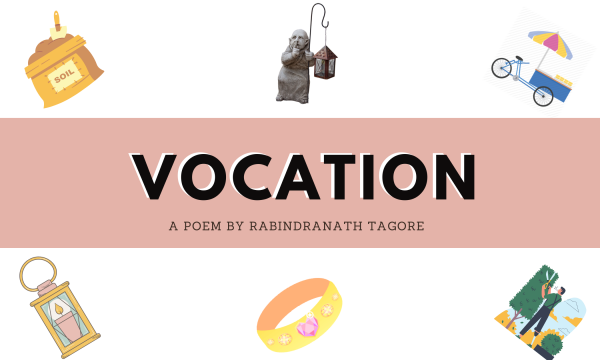

Vocation by Rabindranath Tagore is a perfect tour into the mind of a child. This poem shows our inner-most needs. This poem is also a reminder to all the grown-ups that how these needs are curtailed by the parameters of the societal norms.
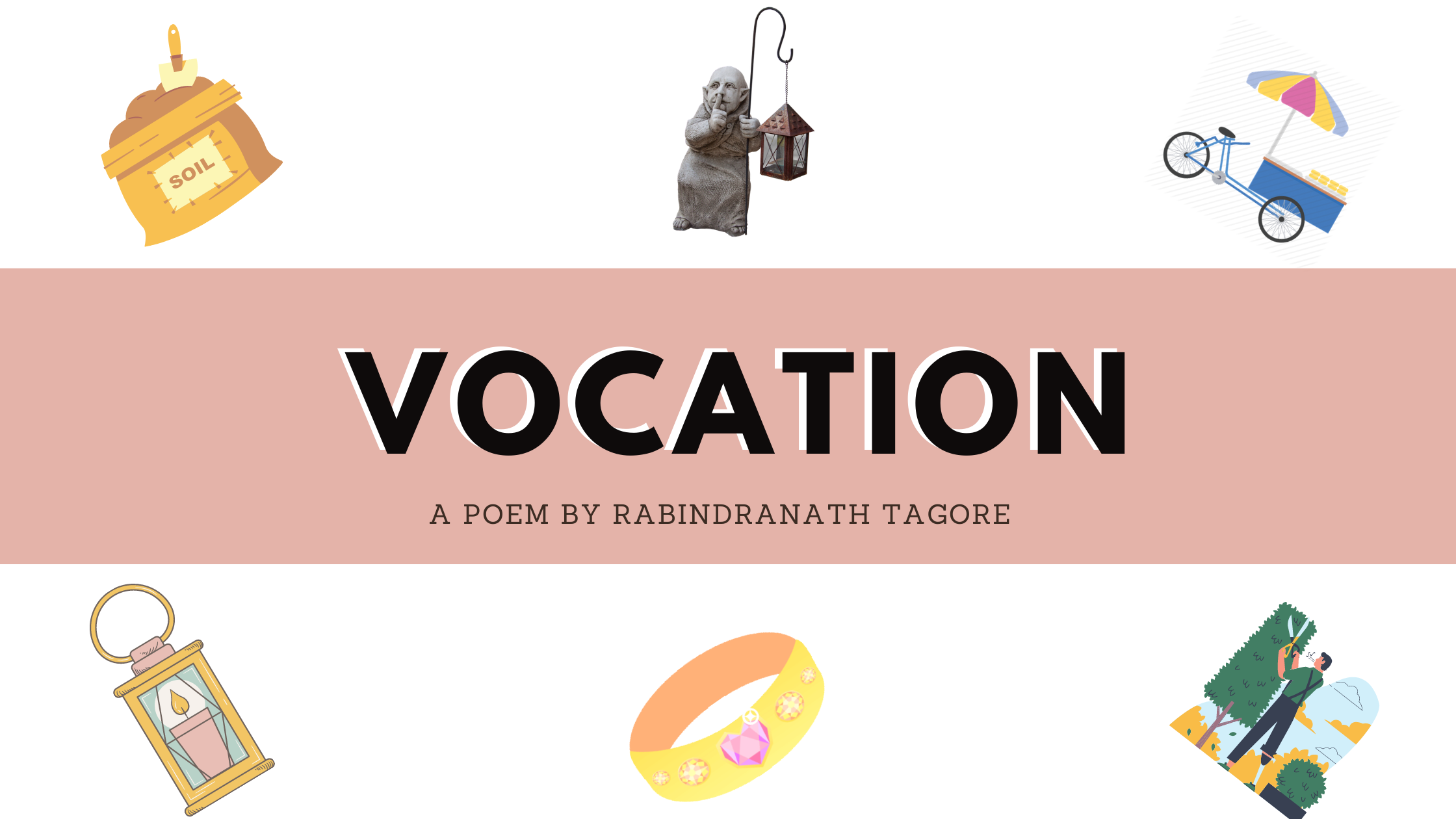

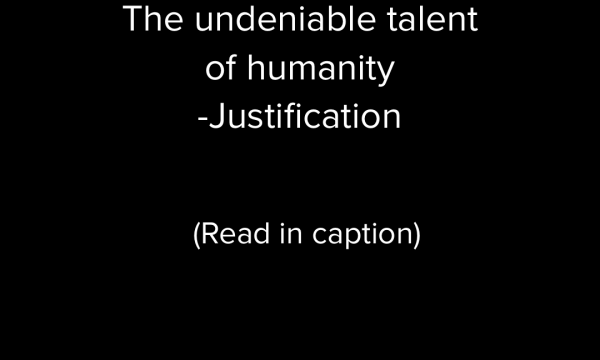

The undeniable talent Of humanity To justify everything Under the sun And over the moon Be it good or bad Wrong or right We reason and justify almost everything However the truth as I see…
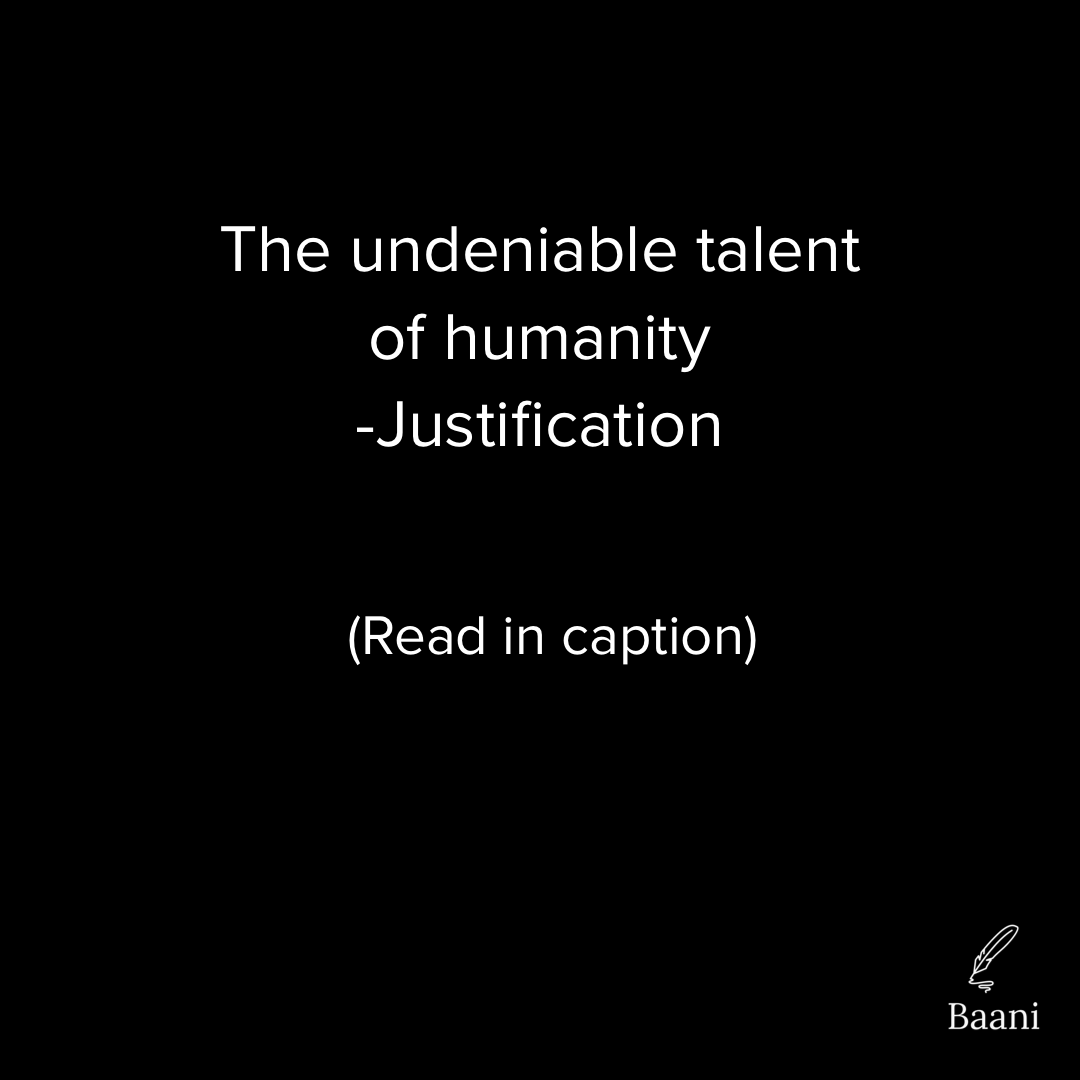

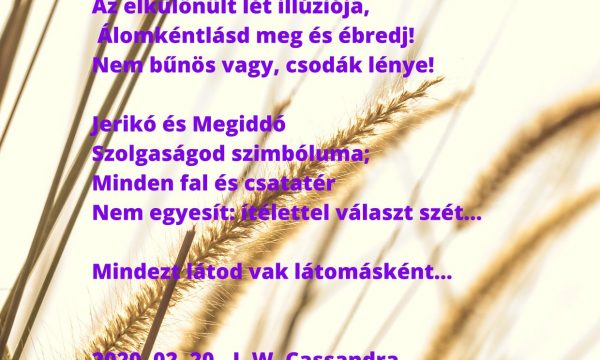

Jericho and Megiddo, by J. W. Cassandra, Page 3. This poem I share in 3 images at altogether. It belongs to my volume XVIII, Incompletion, cycle Armageddon. I’ll share here its Hungarian version, as well. It was written yet in February, but I think it has a more profound sense and message, beyond the literal meaning. I’d like to give through this additional interpretation. (For illustration I chose an own photo, made in Budapest, Old Buda. It is the gate to the military amphitheatre of the ancient Romanian Empire, in the former Acquincum. It was built about 145 A. D.)
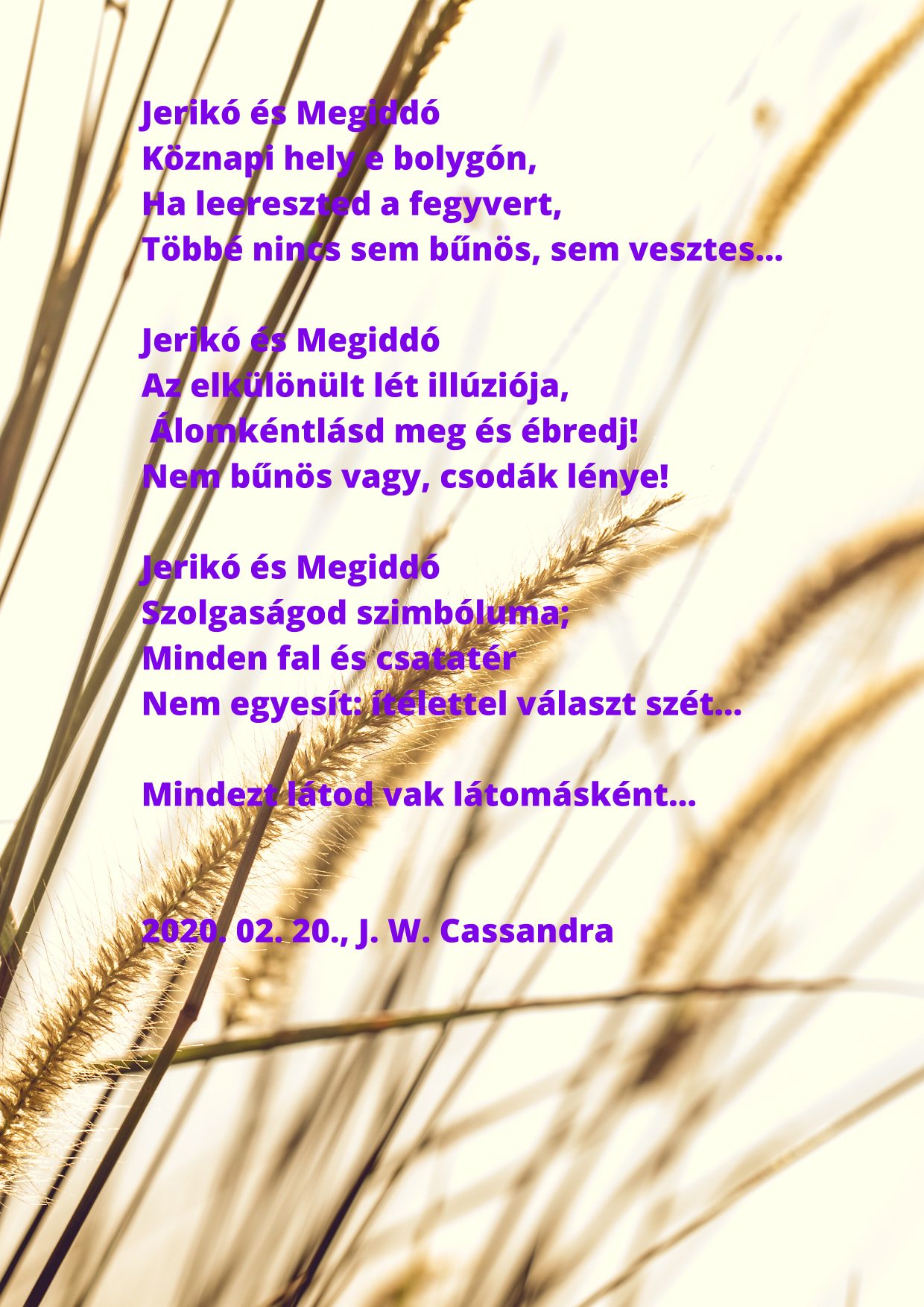



Jericho and Megiddo, by J. W. Cassandra, Page 2. This poem I share in 3 images at altogether. It belongs to my volume XVIII, Incompletion, cycle Armageddon. I’ll share here its Hungarian version, as well. It was written yet in February, but I think it has a more profound sense and message, beyond the literal meaning. I’d like to give through this additional interpretation. (For illustration I chose an own photo, made in Budapest, Old Buda. It is the gate to the military amphitheatre of the ancient Romanian Empire, in the former Acquincum. It was built about 145 A. D.)
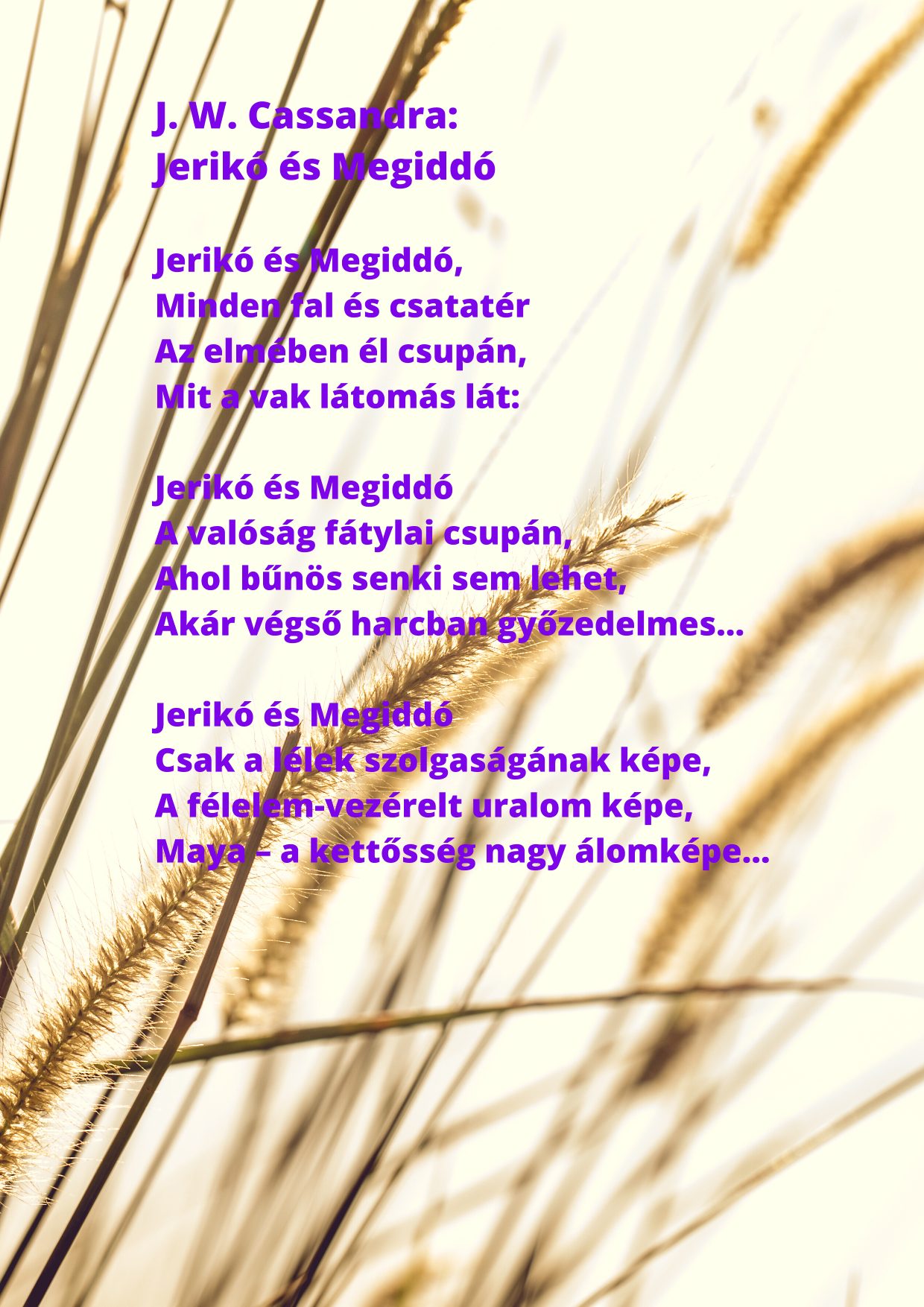



Jericho and Megiddo, by J. W. Cassandra, Title Page, Page 1. This poem I share in 3 images at altogether. It belongs to my volume XVIII, Incompletion, cycle Armageddon. I’ll share here its Hungarian version, as well. It was written yet in February, but I think it has a more profound sense and message, beyond the literal meaning. I’d like to give through this additional interpretation. (For illustration I chose an own photo, made in Budapest, Old Buda. It is the gate to the military amphitheatre of the ancient Romanian Empire, in the former Acquincum. It was built about 145 A. D.)
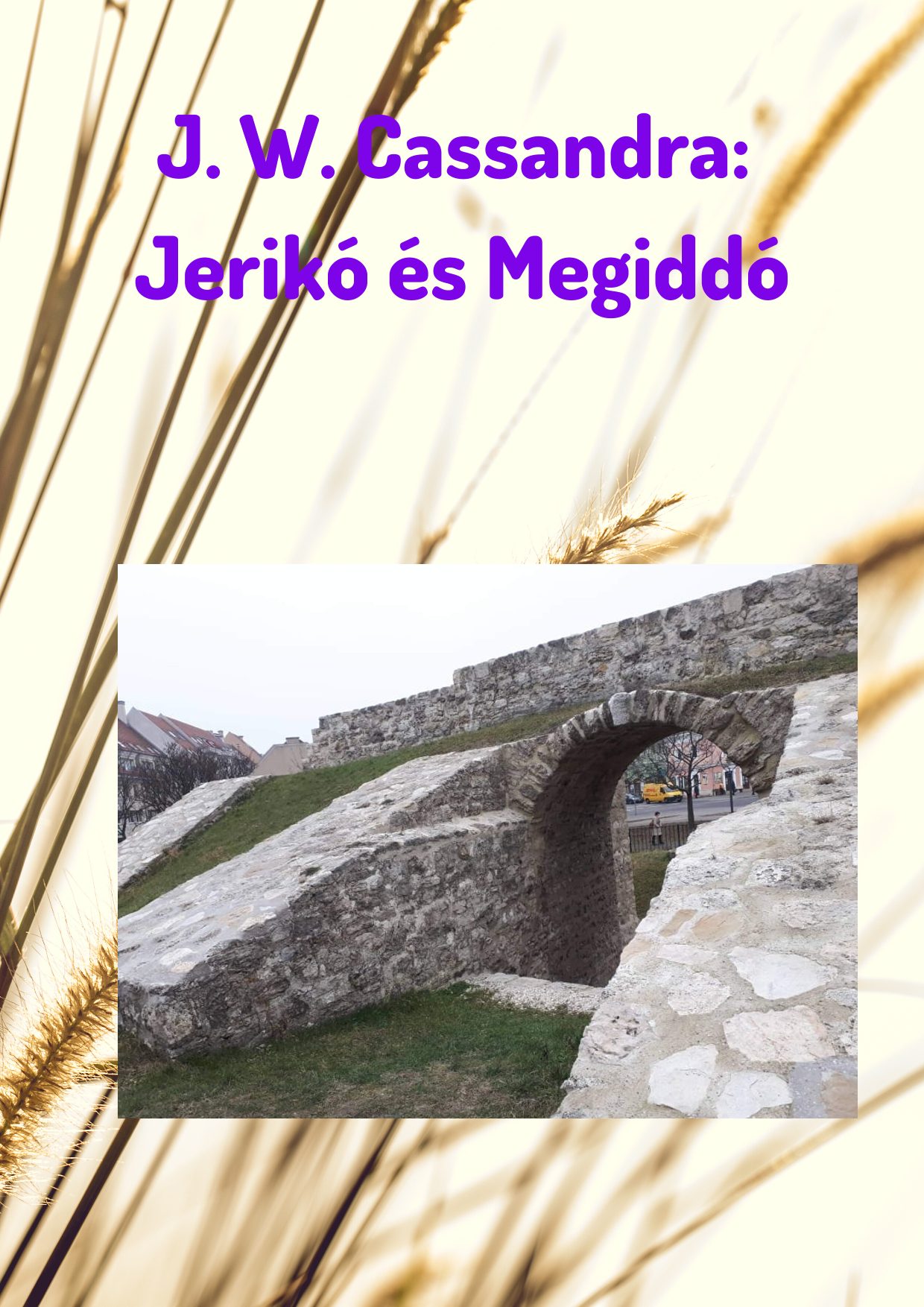



Jericho and Megiddo, by J. W. Cassandra, Page 3. This poem I share in 3 images at altogether. It belongs to my volume XVIII, Incompletion, cycle Armageddon. I’ll share here its Hungarian version, as well. It was written yet in February, but I think it has a more profound sense and message, beyond the literal meaning. I’d like to give through this additional interpretation. (For illustration I chose an own photo, made in Budapest, Old Buda. It is the gate to the military amphitheatre of the ancient Romanian Empire, in the former Acquincum. It was built about 145 A. D.)



